Abstract
In the prevention of diarrhoea, health professionals often advocate boiling as a method of choice to provide safe household drinking-water to villagers in the less developed countries. We have examined the financial feasibility of this recommendation in a village study in Bangladesh. Family income was categorized and the pattern of household fuel consumption was determined. Families in the lowest income quartile would have to spend approximately 22% of their yearly income on fuel, and those in the highest income bracket approximately 10%. Boiling of drinking-water would result in an 11% increase in the household budget (as a percentage of income) for a typical family in the lowest income quartile, compared with a 3% increase for a family in the highest income quartile. We conclude that recommendations concerning boiling of drinking-water in developing countries should not be made until their economic feasibility has been demonstrated.
Full text
PDF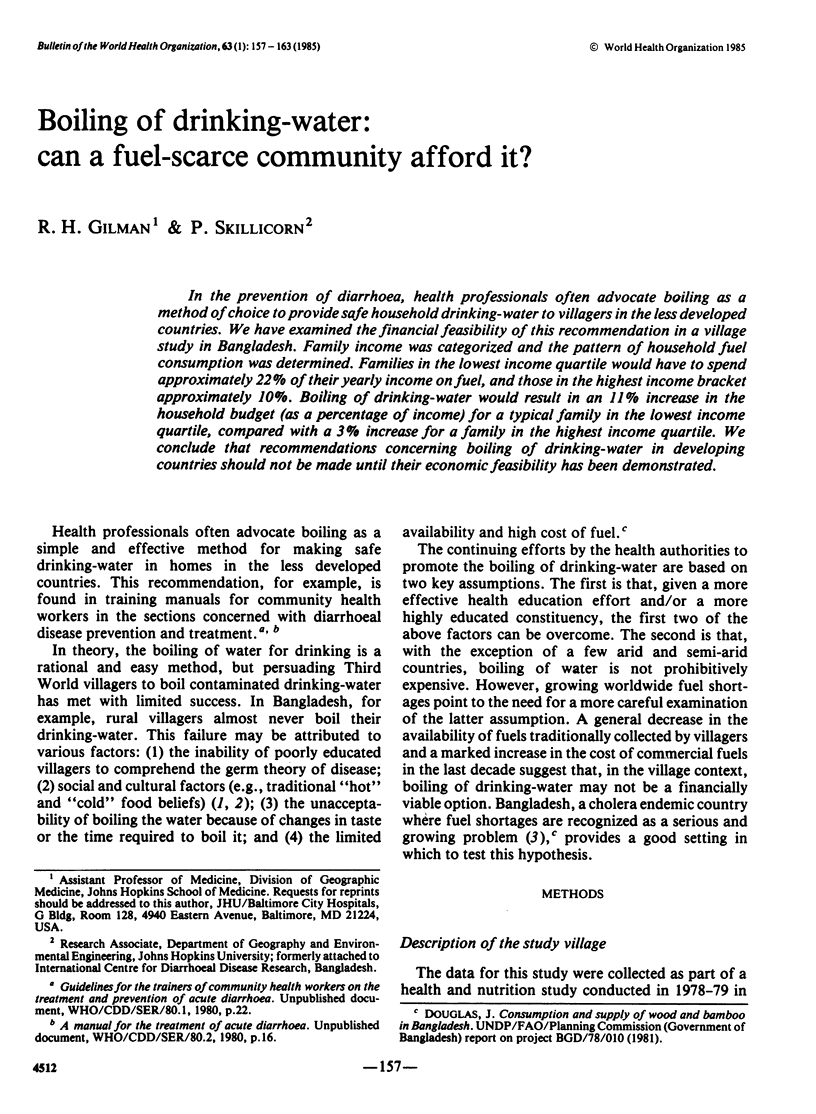
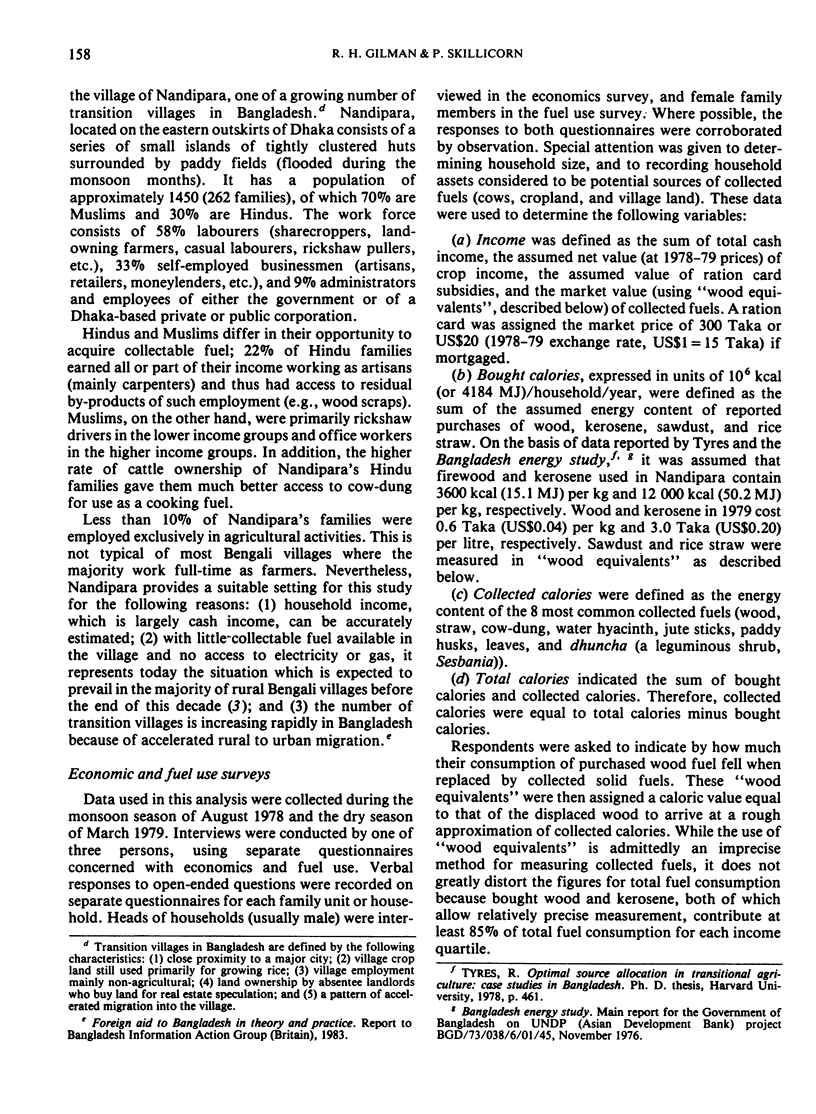
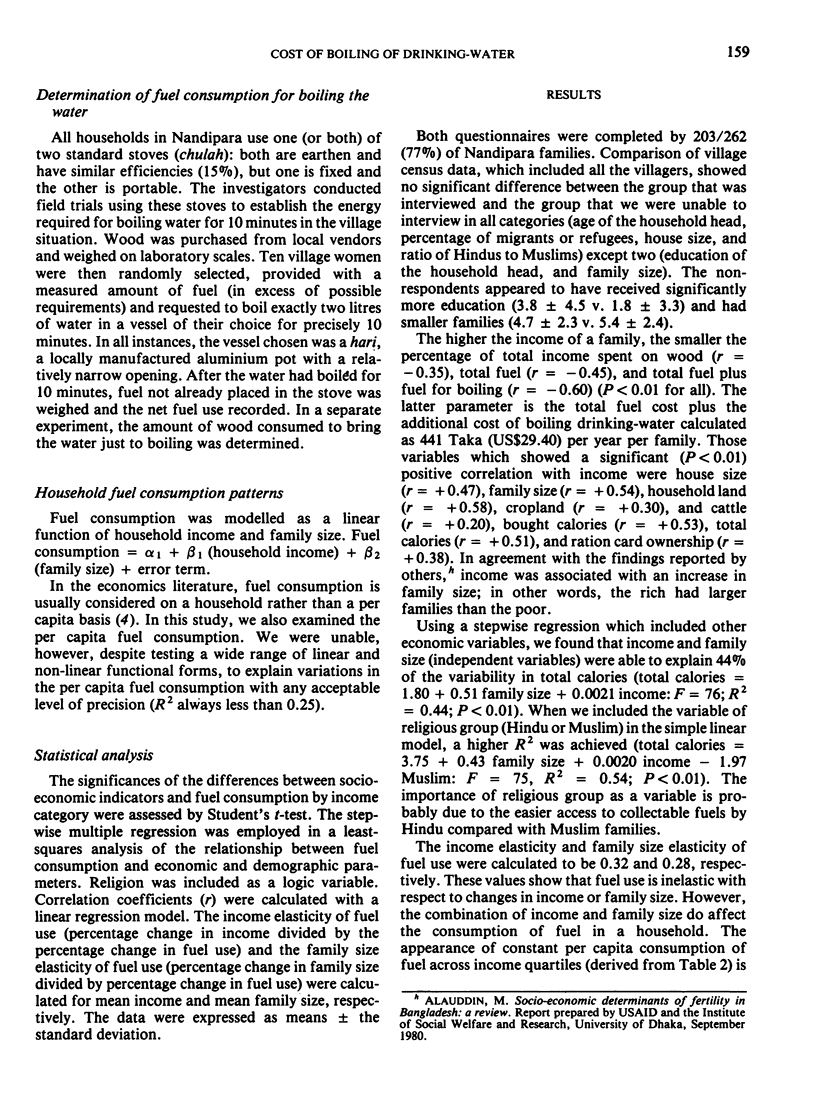
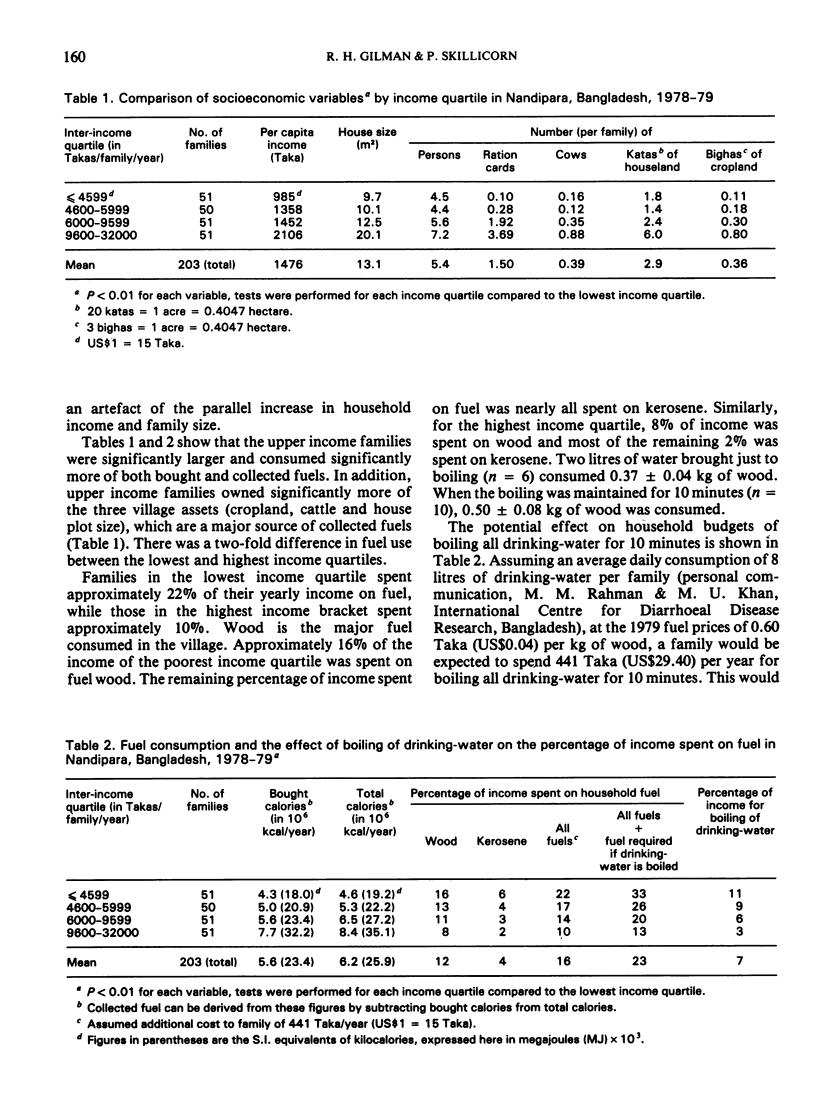
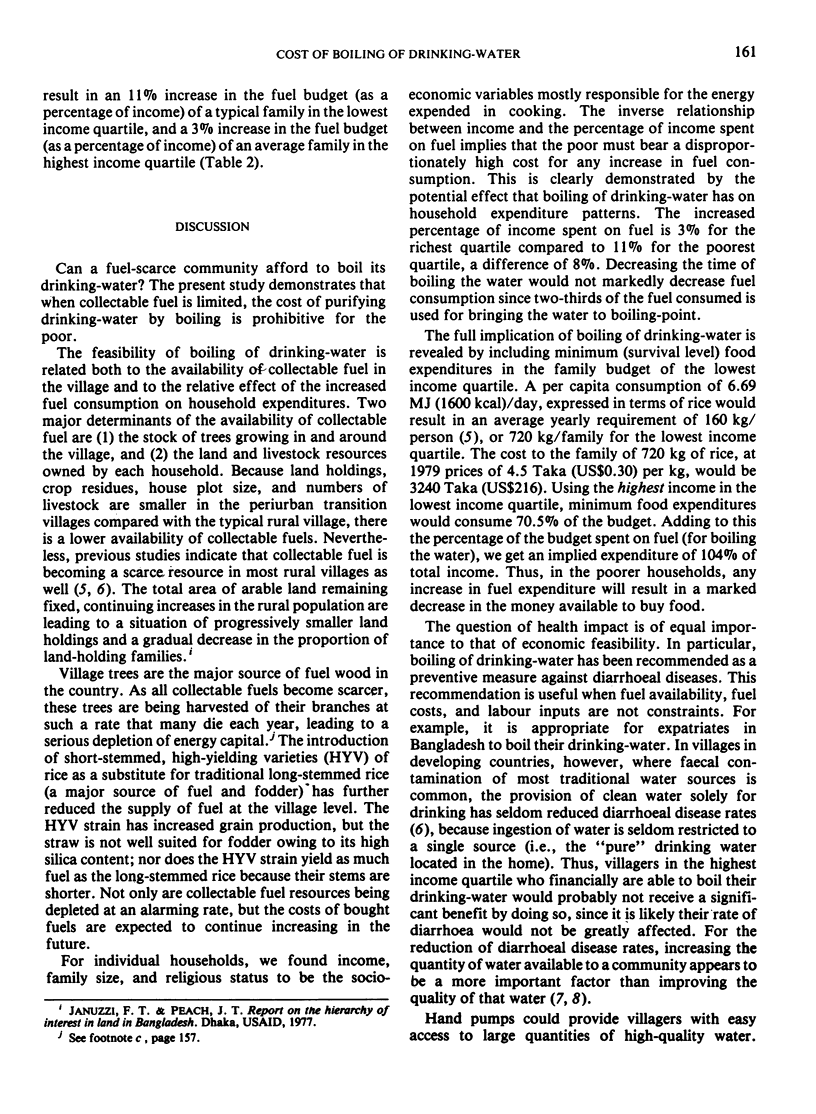
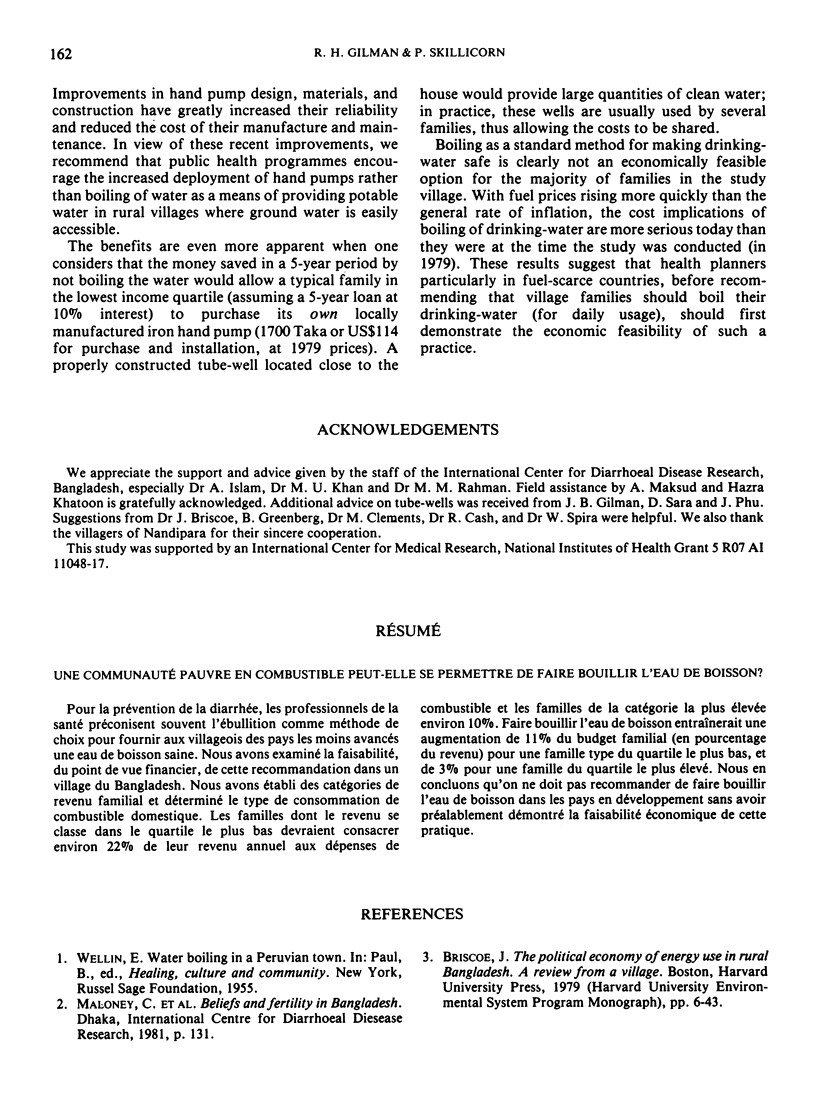
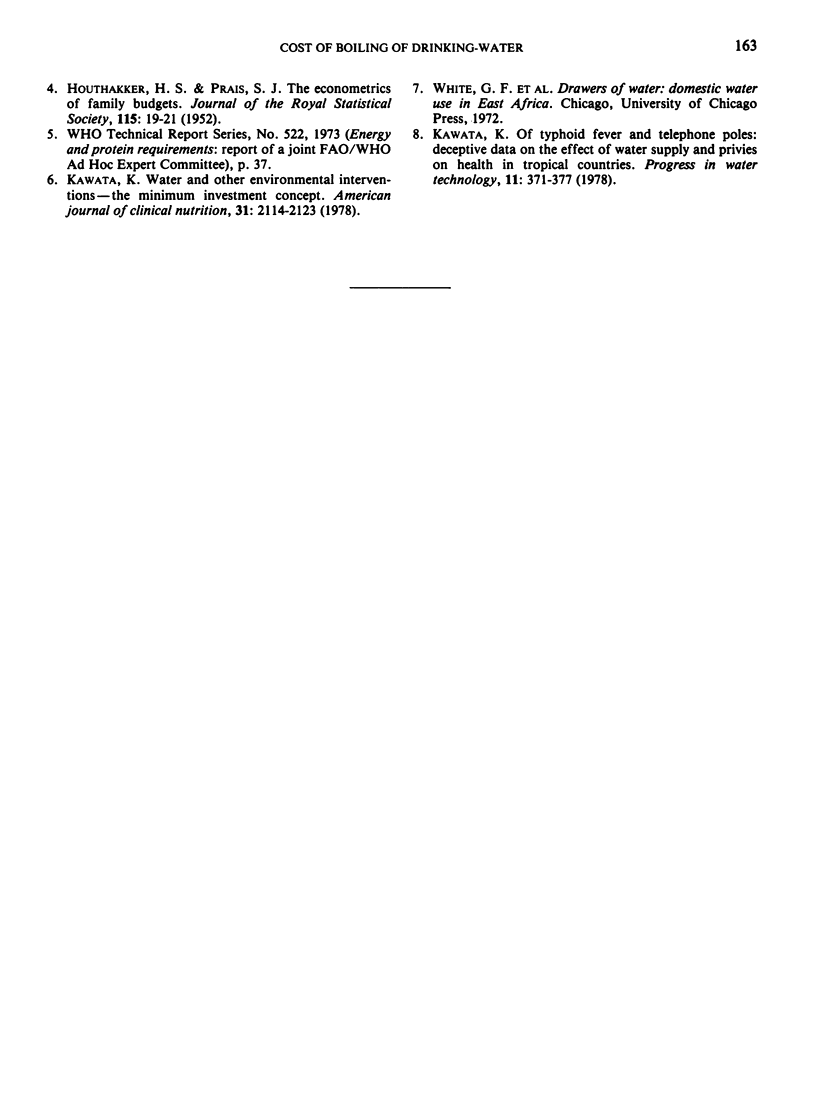
Selected References
These references are in PubMed. This may not be the complete list of references from this article.
- Kawata K. Water and other environmental interventions--the minimum investment concept. Am J Clin Nutr. 1978 Nov;31(11):2114–2123. doi: 10.1093/ajcn/31.11.2114. [DOI] [PubMed] [Google Scholar]


